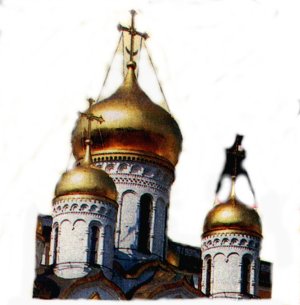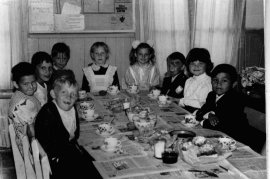

In the age of 6 years we came into the first class on a comprahensive school. This school lasts from 1-10 schoolyears,the first five years the school began on 2.00pm. From the 5th class the school took from to 8.00-1.00pm and from 2.00-6.00pm. In school we gould choose between two languages (French and English) and the timetable did not other religion any intmence by the church was suppressed. Schooluniforms were duty. More performance as in German schools was expectedand we had to learn harder as in Germany. The teachers demanded strict discipline. All together we had long holidays twice a year, in the winter two weeks and in the Summer 3 month. First of September the school began all over the country. In case of absence from school we had to slow a midical certificat. The Riligionfestival would celebrate in the family. The biggest part of our freetime we were ostside with our friends. We needn t money.
 |
 |
The New Year`s Eve was more important. In the age of ten our parents were forced to leave Kasachstan by economic conditiones and they to emmigrate to Germany. The arrivel in Germany was ashock for us we had to leave evrything behind us and we tried to start again from the biginning.
 |
 New Year`Eve
1989 New Year`Eve
1989 |
„Russia is a world apart"
This assertion alone often cited would seem tobe the only reliable thing that can be said about the country, apart perhaps from:" No one who has come into direct contagt with Russia has ever left it in a state of in difference."
There have been some who,for what reasen or other they found themselves there, have eternellycursed it as being repellent. There have been otherstoo, undoubtedly the greater majority, who have remained under its spell till their dying day.
Ancient historians regarded the peoples of the East as savage barbarians - an attitude which has persisted in the minds of many, through the Middle Ages, Renaissance and Enlightenment richt down to the present day.
In a similar vein, earliest German accounts of the Russian people dealt above all with the tyranny of the czars, the severity with which they wielded their power, the atrocities of Ivan the Terrible, the extravagance of the lives of the Russian nobility and members of the merchant classes and the image of the "ignoble Muscovite". Continued czarist despotism and subsequent stalinist terror have both played furher roles in mainttaining these impressioup to our modern age.
Throughout this period, what Germans knew and know about Russia, its people, their culture and history has remained at best scant. Some of the reasons for this may well be sought in the 200-year-long Mongol rule of the territory, which led so totally to the country being cut off from western and central Europe. This initial state of isolation continued namely under the czars who followed, with the sole exceptions of Peter the Great and CatherineII the Great. Its saddest culmination was reached under the soviet "czars" of the 20th cenury andnot until Michael Gorbachev`s `New Approach`was it finally brought to aclose Through his cultivation of warmer relations to the West.
The lack of knowiedge and the prejudicial attitudes towards Russia and its people on the part of Germans stem, however,also from some sort of arrogance with respect to feelings of superiority which only allowed peoples of eastern Eurrope to be considered subhuman`. Whereas Heinrich Böll and Heinrich Heine are know to almost all Russian schoolchildren, pushkin and Bulgaskov still remain in Germany the preserve of the few.
In pre-revolutionary St. Petersburg and Moscow, German –besides French – was the language of the `intelligentsya`. German lower and upper schools were the favoured institution chosen by thee Russia `education classes` for their offspring. Even during the Second World War plays by Goethe and Schiller were sstill being staged in Russian theatres whilst in Third-Reich concert halls not even a bar of Tchaikovsky was too be heard.
The enormous contribution Russia has made not only to that of the world at large still remains to be discovered, just as much as the country itself in all its diversity and its people with all their inconsistencies.
Russia, that country in the East, is still felt by many to be a threat.Its people are enigmatic, their political endeavours weird.
Even now that the Soviet Union has disintegrated, there is still profoud distrust at nearly all comers regarding developments that might take place within such a gigantig neighbourding power,lying as it does on the threshold between Europe and Asia. Russians, so goes the widely-held stereotyped view, have after all never known what a democracy is.
 summer 1999 summer 1999 |
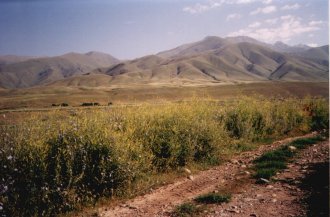 summer 1999 summer 1999 |
 1999 1999 |
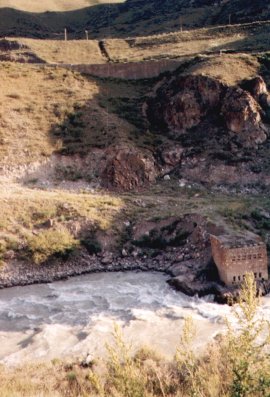 1999 1999 |
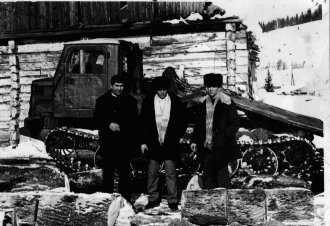
Vast, endless stretches of unspoilt countryside still meet the eye-birch forest, lakes and rivers still as beatiful and romantic as those extolled in the Russian folksongs of yore. In towns aand cities,what remains of the architegture of the historigc past is slowly but surely being painstakingly restored. Renewed gold leaf on the cupolas of a multitube of churches gleam in fresh glory. Scores of people, mainly the young, are setting out,now that frontiers have fallen on new paths of discovery-bound for Europe, bound for the world at large.
